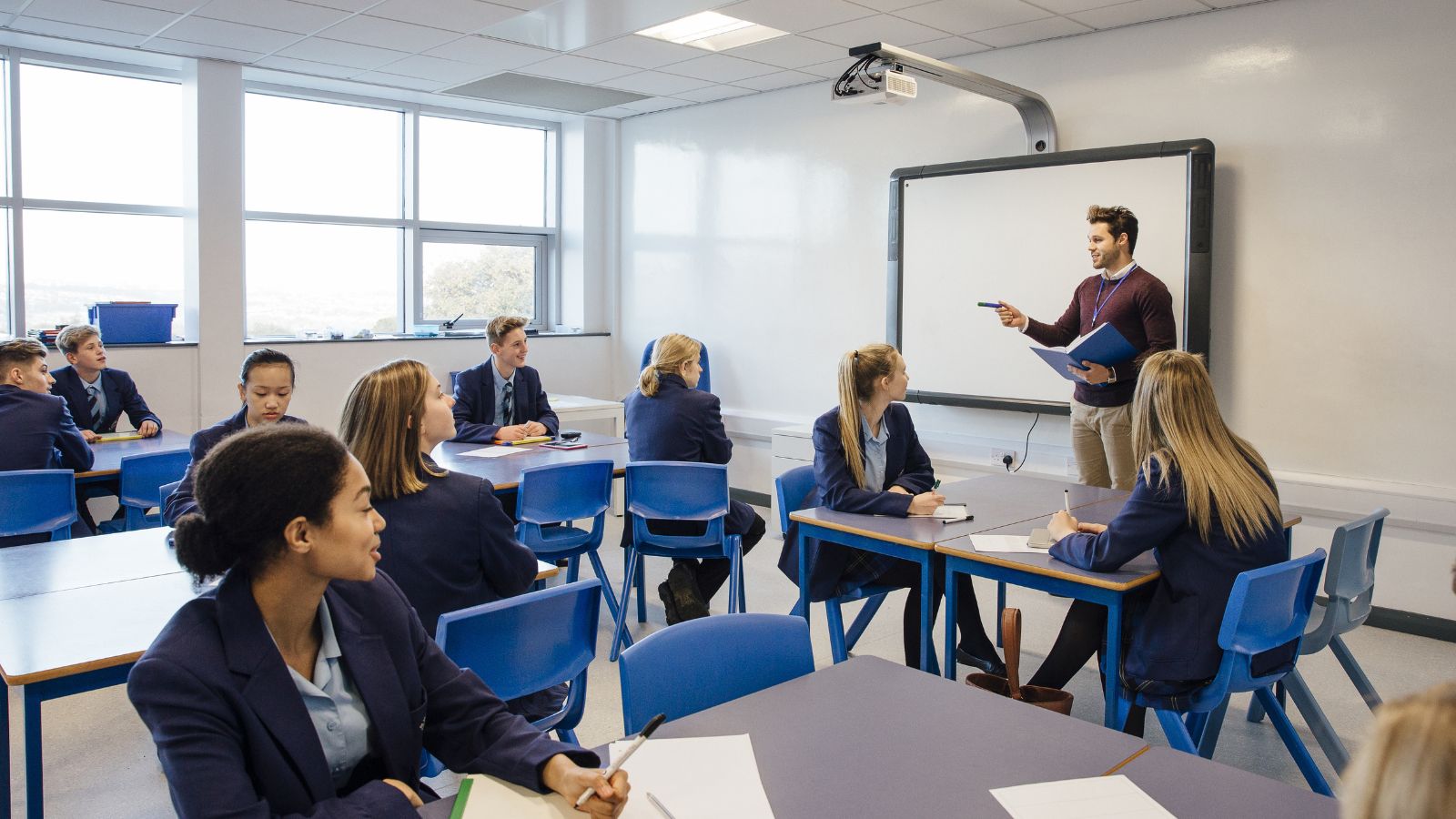The British education system has long been a source of pride, but in recent years, cracks have begun to show, and there are growing concerns that it is no longer meeting students’ needs. Here are 20 signs that the British education system is struggling to keep up with the times.
Inadequate Support for Special Needs Students

“Half of state-funded schools in England for children with special educational needs and disabilities are oversubscribed,” reports the BBC. Special needs students require tailored support to thrive in the education system, but many are being let down, as there is a shortage of trained special education teachers and support staff.
Overcrowded Classrooms

One of the most glaring signs that the British education system is faltering is the issue of overcrowded classrooms. With a growing population and limited school infrastructure, many students find themselves crammed into classrooms with 30 or more peers. This situation makes it difficult for teachers to provide individual attention.
Teacher Burnout

Teachers are at the heart of the education system, but many are burning out at an alarming rate. Teachers are finding it difficult to cope with increasing demands, such as larger class sizes, excessive paperwork, and pressure to meet ever-rising standards.
Lack of Funding

Funding is the lifeblood of any education system, and unfortunately, the British education system is running on fumes thanks to budget cuts. These cuts have led to fewer resources for schools, outdated textbooks, and insufficient classroom materials. In many cases, parents are being asked to contribute towards basic supplies.
Inequality in Education

The gap between the haves and have-nots is widening within the British education system. Students from affluent backgrounds often have access to better resources, private tutors, and extracurricular activities, while those from less privileged backgrounds are left behind.
Overemphasis on Testing

Standardised testing has become a cornerstone of the UK’s education system, but there is growing concern that it’s doing more harm than good. The focus on test results can lead to a narrow curriculum, where teaching to the test takes precedence over genuine learning.
Decline in Extracurricular Activities

Extracurricular activities are vital for developing well-rounded individuals, but they are increasingly being sidelined in British schools. Budget cuts and a relentless focus on academic achievement mean that sports, arts, and other creative pursuits are being sacrificed.
Outdated Curriculum

The world is changing rapidly, but the British education system is struggling to keep up. Much of the curriculum remains stuck in the past, failing to prepare students for the challenges of the modern world. Subjects like financial literacy, digital skills, and mental health education are either not taught or given minimal attention.
Mental Health Crisis

There is a growing mental health crisis among students in the UK, and the education system is ill-equipped to address it. The pressure to achieve academically, combined with social media and other modern stressors, is taking a toll on students’ mental well-being, and schools often lack the resources and training to provide adequate mental health support.
High Dropout Rates

The number of students leaving school early is another worrying sign. High dropout rates often result from disengagement, where students feel that school is irrelevant to their lives or that they are not supported in their learning. The failure to keep students in education until they achieve their qualifications indicates that the system is not working for everyone.
Limited Career Guidance

Career guidance is essential for helping students navigate their future paths, but it is sorely lacking in many British schools. Students often receive minimal advice on potential career options. Without proper guidance, students may choose paths that do not suit their skills or interests, leading to frustration and wasted potential.
Falling International Rankings

International comparisons reveal that the education system in the United Kingdom is slipping in the global rankings. While these rankings are not the be-all and end-all, they do provide insight into how well a country’s education system is performing. The fact that the UK is falling behind other nations, particularly in areas like maths and science, is a worrying sign.
Lack of Vocational Education

Not every student is academically inclined, yet schools often fail to provide sufficient vocational options. Vocational education is crucial for students who wish to pursue careers in trades or technical fields, but it is often seen as a lesser option compared to academic routes.
Parental Disengagement

Parents play a vital role in their children’s education, but many feel disconnected from the current system. The emphasis on tests and grades can make parents feel that their involvement is limited to helping with homework or attending parent-teacher meetings. However, true parental engagement goes beyond this, involving active participation in a child’s learning journey.
Stressed and Overworked Students

The pressure on students to perform well in exams is immense, leading to stress and burnout at increasingly younger ages. The emphasis on academic success often comes at the expense of students’ well-being, with little time left for relaxation or socialising.
Teacher Shortages

A shortage of teachers, particularly in subjects like maths and science, is another indicator that the British education system is in trouble. Recruitment and retention of teachers have become major challenges, with many schools struggling to fill vacancies. This shortage forces schools to rely on temporary staff or teachers without specialisation in their teaching subjects.
Limited Digital Literacy

We know that digital skills are increasingly important, but UK schools are lagging behind. Many schools do not have the resources or expertise to teach students the digital literacy skills they need for the future, and this gap leaves students unprepared for the digital demands of the modern workforce.
Lack of Focus on Critical Thinking

A crucial skill for getting through the complexities of everyday life, critical thinking is still often neglected in the British education system. The focus on rote learning and standardised testing can stifle students’ ability to think critically and solve problems creatively.
Overemphasis on University Degrees

Many students feel pressured to pursue higher education, even when their interests or skills might be better suited to other paths. This focus on university education can lead to a devaluation of alternative routes, such as apprenticeships or vocational training. The overemphasis on university degrees is a sign that the education system is not recognising or promoting the full spectrum of opportunities.
Inconsistent Standards Across Regions

And lastly, there is a noticeable inconsistency in education standards across different regions of the UK, which highlights another significant flaw in the system. Schools in more affluent areas tend to have better resources, more experienced teachers, and higher student performance. In contrast, schools in less affluent areas often struggle with underfunding and lower academic outcomes.







